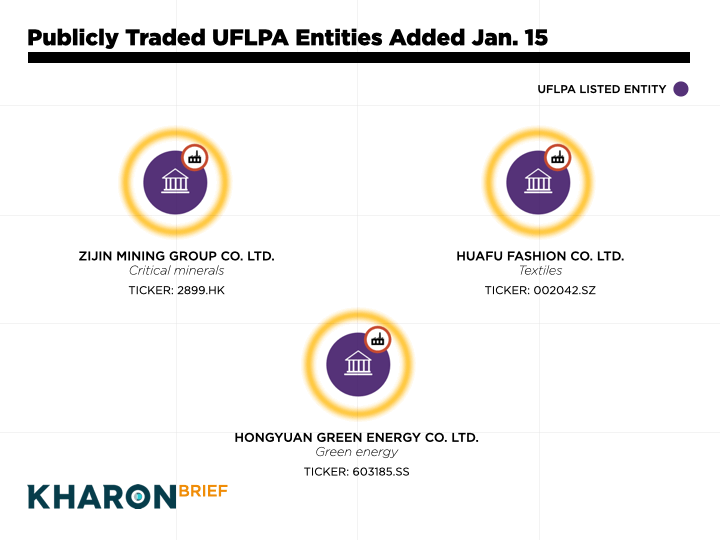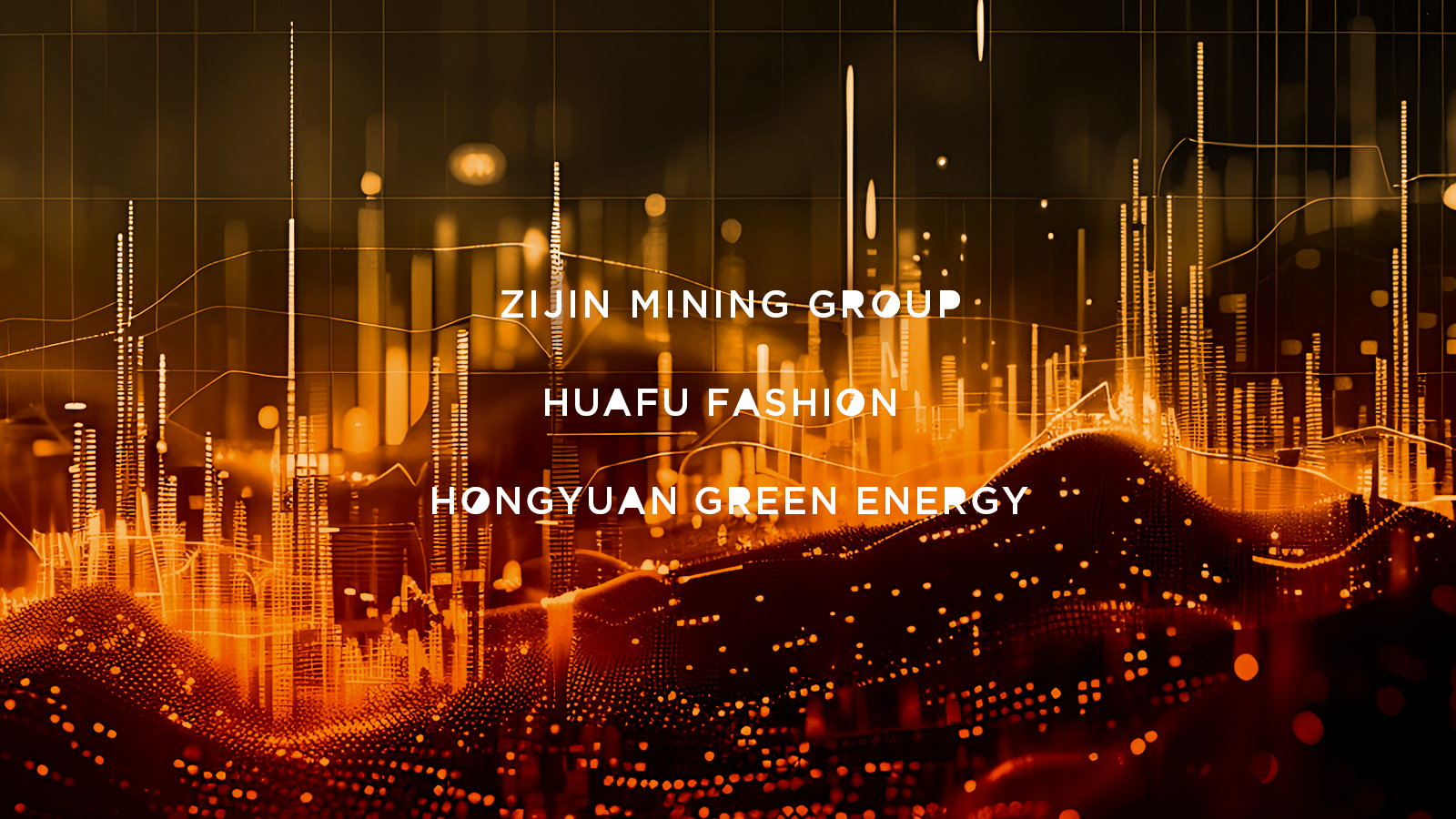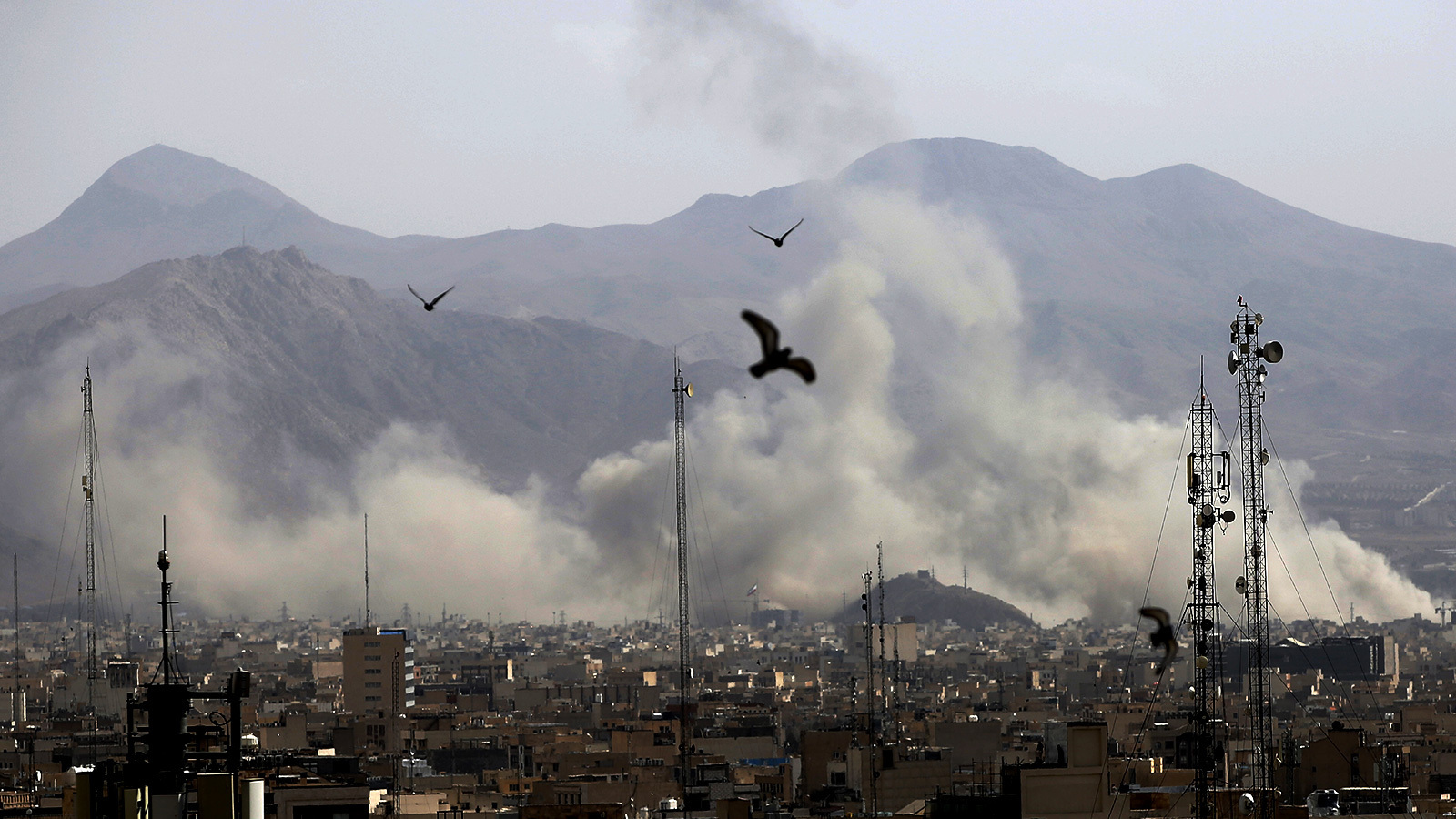What happened? The U.S. government added three publicly traded Chinese companies to its Uyghur Forced Labor Prevention Act (UFLPA) Entity List on Jan. 15, expanding its efforts to combat forced labor in Xinjiang. These companies’ securities are held in funds offered by major U.S., European and Canadian asset management firms. The combined market capitalization of the companies totals over $50 billion.
For context: This action, part of the U.S. Department of Homeland Security’s ongoing expansion of the UFLPA list, adds 37 entities, bringing the total to 144. The law prohibits the importation of goods produced in Xinjiang or by any entity on the list into the United States.
For context: This action, part of the U.S. Department of Homeland Security’s ongoing expansion of the UFLPA list, adds 37 entities, bringing the total to 144. The law prohibits the importation of goods produced in Xinjiang or by any entity on the list into the United States.

About the additions:
What’s next: While current restrictions on UFLPA entities are limited to imports, the U.S. government cautioned in its Xinjiang Supply Chain Business Advisory that “businesses and individuals that do not exit supply chains, ventures, and/or investments connected to Xinjiang could run a high risk of violating U.S. law.” Additionally, the House Select Committee on the Chinese Communist Party has called for restricting certain investments in UFLPA-listed entities.
The Takeaway: Investors with financial exposure to these UFLPA-listed companies will need to consider the potential impact of these actions on future performance.
—-—-—
More on Investment Risk
- Zijin Mining Group Co. Ltd. [2899.HK] and four subsidiaries:
- Industry: Critical minerals
- Reason for addition: Sourcing material from mines in Xinjiang or participating in labor transfers of ethnic minorities from the region.
- Of note: All four subsidiaries listed in this action had previously been flagged in Kharon’s forced labor dataset for potentially trading mined materials from Xinjiang. Kharon users can explore these relationships through the ClearView platform.
- Huafu Fashion Co. Ltd. [002042.SZ] along with 25 of its subsidiaries:
- Industry: Textiles
- Reason for addition: Sourcing cotton products from Xinjiang.
- Of note: Huafu Fashion and the majority of its subsidiaries had previously been flagged by Kharon for potentially trading cotton originating from Xinjiang and for engaging in high-risk labor practices in the region, including in a 2020 brief article.
- Hongyuan Green Energy Co. Ltd. [603185.SS] and its subsidiary Hongyuan New Materials (Baotou) Co. Ltd.:
- Industry: Green energy
- Reason for addition: Sourcing polysilicon—a key component in solar panels—from Xinjiang.
- Of note: Kharon published an investigation in 2022 showing that the two companies had contracts with multiple polysilicon suppliers in Xinjiang, with dates extending through Dec. 2025. Two of these suppliers had previously been added to the UFLPA List.
What’s next: While current restrictions on UFLPA entities are limited to imports, the U.S. government cautioned in its Xinjiang Supply Chain Business Advisory that “businesses and individuals that do not exit supply chains, ventures, and/or investments connected to Xinjiang could run a high risk of violating U.S. law.” Additionally, the House Select Committee on the Chinese Communist Party has called for restricting certain investments in UFLPA-listed entities.
The Takeaway: Investors with financial exposure to these UFLPA-listed companies will need to consider the potential impact of these actions on future performance.
—-—-—
More on Investment Risk







